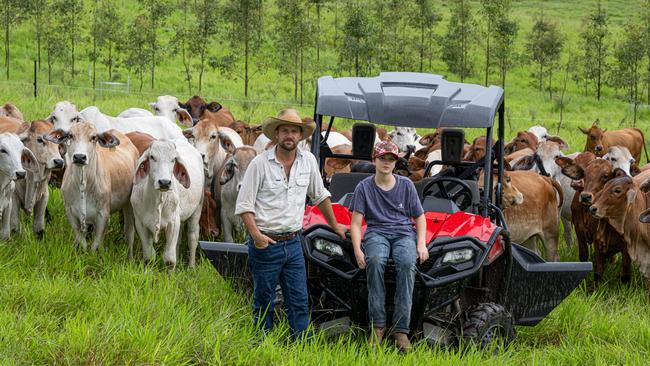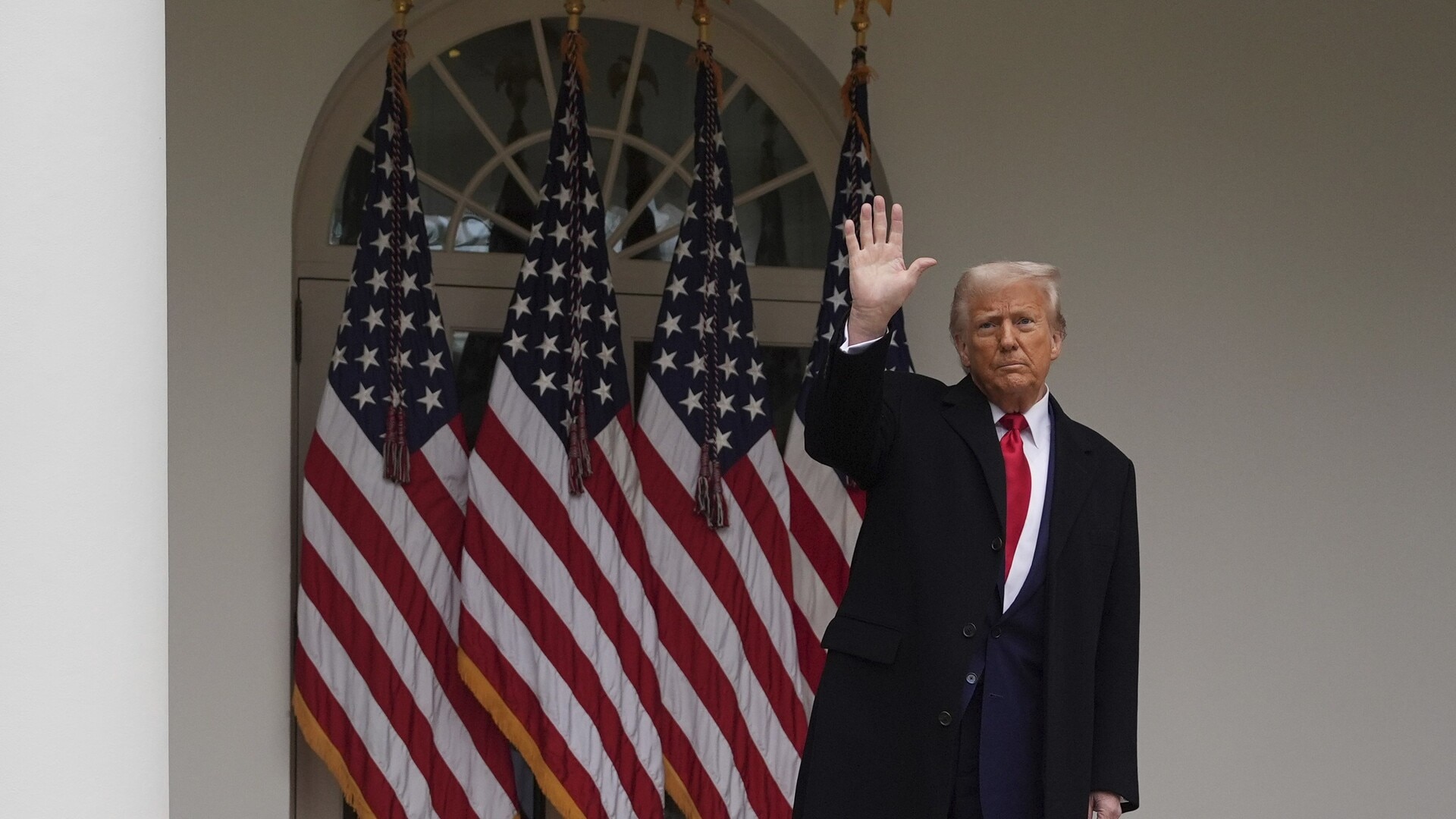‘Don’t cave to Trump’: beef farmers warn of bigger damage if biosecurity is traded for tariff relief
Why beef farmers with skin in Donald Trump’s tariff game would rather a fight than giving ground on biosecurity.

Queensland beef farmer Adam Coffey has skin in the tariff game being played by Donald Trump, but he doesn’t want our leaders to “back down from a fight”, despite the high stakes.
Mr Coffey and wife Jacynta run about 1000 Brahman/Brahman-cross cattle on their 2500ha Miriam Vale property, and could be collateral damage in any wider tariff war.
Anthony Albanese on Thursday said US tariffs on Australian beef exports had been limited to the 10 per cent imposed on all products.
However, there are concerns the US President, under pressure from American beef producers, will go further, with higher tariffs for beef or even an import ban.

While wanting the government and its agencies to work harder in the US, Mr Coffey said it must not risk the industry’s “clean, green” image by caving in to Mr Trump on biosecurity measures.
“We are the third largest beef exporter in the world – that’s a lot of product,” Mr Coffey said.
“In 2024, we exported nearly 400,000 tonnes of beef to the US.
“The underlying drivers don’t disappear overnight. So we need to be prepared to highlight our importance in the global beef trade – and not back down from a fight where there’s one to be had.
“Our product is in demand, and we have to remember that.”
The US President on Thursday claimed Australia “bans” US beef. “They’re wonderful people, and wonderful everything — but they ban American beef,” Mr Trump said. “Yet we imported $US3bn of Australian beef from them just last year alone.
“They won’t take any of our beef. They don’t want it because they don’t want it to affect their farmers and, you know, I don’t blame them but we’re doing the same thing right now.”
Mr Coffey, vice-president of Cattle Australia, said this was untrue, with US beef having been allowed into Australia since 2019.
The US’s problem has been that it, unlike Australia, had not invested in a top-notch traceability system.
This meant that it could not meet import requirements that it demonstrate its beef was from animals born, raised and slaughtered in the US, raising concerns about BSE/mad cow disease.
“We have a world-leading traceability system – we know what property an animal comes from, where it’s been, who’s sold it, who’s bought it, where it was born,” Mr Coffey explains
“They don’t have the same system in place in the US so they can’t guarantee equivalency.
“That’s the issue here. No one is trying to block US beef coming here. They’re just not meeting our import requirements.”
While believing Australia’s representatives in the US could do more to amicably resolve differences over the issue, he said it was not something our government should back down on.
Allowing BSE or another disease into Australia would be a disaster, he said.
“Our biosecurity and our credentials around clean, green product is our shining light,” Mr Coffey said.
“That’s our selling point and we need to maintain and protect that selling point.”






To join the conversation, please log in. Don't have an account? Register
Join the conversation, you are commenting as Logout